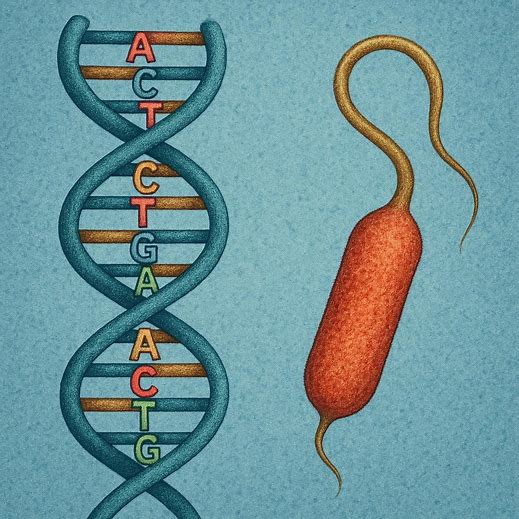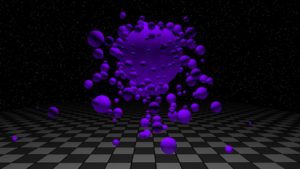When I first started getting into Christian Apologetics as an 18-year-old kid, I was introduced to the intelligent design movement. Led by big names such as Stephen Meyer and William Demski, people in this movement seek to establish the existence of a creator and designer of the cosmos and of life.
Ever since it’s inception, the intelligent design movement has had an uphill battle, trying to establish itself as an alternative scientific view of origins to what is perceived as an atheistic view of origins in Darwinian evolution. There have been court battles spot over intelligent design, with Advocates trying to get intelligent design taught in schools. Instead of, or at least a long side of, evolution. [1]See, for example, “Kitzmiller v. Dover Area School District”, — https://www.ebsco.com/research-starters/law/kitzmiller-v-dover-area-school-district.
An ID Friendly Theistic Evolutionist?
I became a Theistic Evolutionist in 2018 after two long years of studying the writings of Theistic Evolutionist biblical scholars and scientists. Among the most influential books that lead me to this conclusion were John Walton’s books “The Lost World Of Genesis One: Ancient Cosmology and The Origins Debate” and “The Lost World Of Adam and Eve: Genesis 2-3 and The Human Origins Debate“, and Aaron Yilmaz’ book “Deliver Us From Evolution?: A Christian Biologist’s In-Depth Look at the Evidence Reveals a Surprising Harmony Between Science and God.” While the latter dealt with some theological and biblical issues, the second half of the book made an overwhelming case for an ancient earth and universe, and for descent with modification. More recently, I have found that books like William Lane Craig’s “In Quest Of The Historical Adam: A Biblical and Scientific Exploration” to be an even better treatment in the issue of the historical Adam than even Walton’s book was. And I wrote a review of that book here.
Despite the fact that I affirm what is commonly known as macro evolution, universal common ancestry, dissent with modification, or whatever you want to name it, I would consider myself quite favorable to a lot of the Intelligent Design arguments. Obviously if you’ve spend any amount of time on this website, or have been following my recent string of book releases, you will know that I am a fan of the Kalam Cosmological Argument, which argues for a transcend creator on the basis of the origin of the universe has established by Big Bang cosmology, and the second law of thermodynamics, as well as the law of causality. I am also a fan of The Cosmic Fine-Tuning Argument (see my book “The Fine-Tuning Argument For God’s Existence: Blog Posts From Cerebral Faith“) argues that the improbability of the laws in the constants of physics, taking on the very narrow ranges needed for life to exist in the cosmos cannot be due to physical or necessity, but must be explained by a cosmic designer. And, as I defend in Chapter 3 of “The Case For The One True God“, I think a case for design in the area of hundreds of local parameters, such as the size and distance of the moon, the size of the earth, the rotation speed of the earth, the just right size and distance of the gas giants from the planet earth, and so on are too improbable to be the result of chance. [2]I am not the only Theistic Evolutionist to be favorable to arguments for God’s existence which employ science. Francis Collins, in his book “The Language Of God: A Scientist Presents … Continue reading
And for a while, I tried to be like the cool kids (I.e other Theistic Evolutionists) and be skeptical and derisive of design arguments in biology as well. However, I just couldn’t get on board with folks like Dennis Venema and Aaron Yilmaz in dismissing any sort of Intelligent Design in the realm of biology. The origin of life does seem to require the direct intervention of God. I think that evolution works, but it only works if you have life. Natural selection needs mutating life forms to select. If there is nothing alive, that is undergoing beneficial mutations, the natural selection just doesn’t have anything to select. Evolution can’t get off the ground without life. And I am skeptical that naturalistic origin of life scenarios will ever be successful. For one thing, they have been trying to figure it out for years and years and years. There is an extremely long parade of failed naturalistic theories that try to count for the origin of life. Hugh Ross and Fasale Rana talk about these in “Origins Of Life: Biblical and Evolutionary Models Face Off.” In that book, in fact, Drs. Ross and Rana say that every year that they attend an origin of life conference, the tone gets more and more pessimistic. Maybe they can’t find an explanation because there isn’t one. Not a natural one anyway. But, I wouldn’t base this conclusion simply on the failure of natural explanations. That is prone to evoke a charge of “God Of The Gaps”. That said, the failure to come up with a natural explanation despite centuries of research and efforts should have some evidential significance. But, rather, there are many positive arguments for the intelligent design of the origin of life as well. For example, the argument that DNA is a four letter alphabet that tells amino acids how to make proteins, and behaves very similar to the binary code of a computer is a very compelling argument to me. Information always comes from intelligent persons. Information never arises from random chance, or natural processes. Even messages that are AI generated needed the AI to be created and programmed by humans in order for them to turn out their chat responses. DNA is a quaternary code, then it seems unreasonable to me to think that it was the result of some unintelligent process. That is not a God Of The Gaps argument. That is a positive argument on the basis of what we do know.
There is a weird mirror image when it comes to me reading Intelligent Design material and evolutionist material. when I read the former, I track with them when they talk about the fine-tuning of the laws of physics and the complexity of the cell. But they start to lose me when they start trying to disprove common ancestry and establish some form of creationism. When people like Stephen Meyer or Frank Turek, for examples, move beyond cosmic, Fine-Tuning, or the Signature In The Cell Argument [3]So named after Stephen Meyer’s book “The Signature In The Cell: DNA and The Evidence For Intelligent Design”, and start trying to explain away anatomical and genetic similarities by pointing to “a common designer” as an explanation, or say that fossil lineages are no more significant than lining up pots and pans, [4]Frank Turek and Norman Geisler use this analogy on page 149 on their book “I Don’t Have Enough Faith To Be An Atheist”, CrossWay. It is Figure 6.3 in the book. then I begin to cease feeling the persuasive force of their arguments more and more.
But the funny thing is, the opposite is true when I read pro evolution material. Whether they be from atheists or from Christians. When I read arguments about the various ways, we know the earth and universe are 14 billion years old, and the fossil record, and the various genetic signs that different lifeforms are related; like shared atavisms, ERVs, and psudeogenes between humans and apes, etc. I find these arguments very persuasive. But when they try to disprove the case for design at the level of the origin of life, that’s when their arguments start to lose their persuasive force. Aaron Yilmaz’ book “Deliver Us From Evolution” which is arguably the book that was the deciding factor in me, changing my views on origins, just did a terrible job attacking the Signature In The Cell Argument, and even attacked straw men of the argument from irreducible complexity at times.
I find myself in the odd position of thinking that DNA is strong evidence for Intelligent Design, but also strong evidence for common ancestry.
The same DNA that is a quaternary code in need of an Intelligent Being to program it also doesn’t set well with the idea that God independently *poofed* different creatures into being, fully formed. This is not the place to get into all of the specifics, as I’m sure most of you are tired of every blog post being a lengthy in-depth scholarly essay. But I will just give one example; humans and chimps share a broken vitamin C gene in the same place in the genome. [5]See Anton Petrov’s “Surprising Reason Why Humans Can’t Produce Vitamin C Anymore” YouTube, August 17th, 2025, — https://youtu.be/bkO9iFhALL4?si=GjOjJ-NmhIS9HiRj, and … Continue reading. This is not what I would expect if God independently, fully formed humans and chimps apart from each other. This would be like having two similar trucks with the same broken lever installed in the same position on their dashboards. And so, while appeals to a common designer can count for surface level physical similarities, when you dig deep into the DNA, you find things that just don’t fit well with that hypothesis. This is one of them.
I am honestly just trying to follow the evidence wherever it leads. I care about the truth. This doesn’t mean I always get things right, but then; that is why I continue to study and learn from different perspectives.
With all of this preliminary stuff out of the way, let me now get to the things that the intelligent design movement could do to possibly be a little bit more successful. 
1: Present ID As A Philosopical Argument That Uses Science
One of the enduring critiques of the intelligent design movement is that it doesn’t have a proper model, and therefore it is not a legitimate scientific theory. Whether or not this criticism is valid, it can be perfectly circumvented by just saying that you’re not presenting an alternative scientific model to the reigning evolutionary parody. You can point to the bacterial flagellum and its irreducible complexity (or just point out the fact that it’s a freaking outboard motor, and looks like it was ripped off a boat!) and say that you are using scientific evidence to support premises in an argument that has theological significance.
This is what Christian Apologists like Dr. William Lane Craig do when defending, for example, The Kalam Cosmological Argument for God’s Existence. For example, on The Reasonable Faith Podcast, he said “I want to be careful about that because I think he does misstate it. He [Dr. Danny Faulkner] asks if one can use the Big Bang to prove God’s existence, and that’s not my claim. My claim is that the Big Bang provides evidence for the second premise of the Kalam cosmological argument – that the universe began to exist.” [6]Dr. William Lane Craig, The Reasonable Faith Podcast, “Misunderstandings About God and the Big Bang”, April 29, 2019 — … Continue reading
Let’s imagine if folks like William Dembski, Stephen Meyer, Phillip Johnson, and others in the ID movement made a similar claim. Philosophical arguments don’t need “models”. They simply need logically sound syllogisms, true premises, and evidence to back up those premises. As far as the common complaint about falsifiability goes, this could go simply as far as telling the ID proponent that he has not successfully defended one of his premises. You wouldn’t need to disprove intelligent design. You wouldn’t need to prove that life came about through a purposeless process. You would just simply need to show that the arguments premises have not been successful established.
For example;
1: Informational Codes always comes from an intelligent agent.
2: DNA is an informational code.
3: Therefore, DNA comes from an intelligent agent.
This is a logically valid syllogism. The conclusion follows from the premises by the rule of modus ponens. If the premises are true, so is the conclusion. So, the atheist can attack one or both of the premises.
Or let’s take the argument from irreducible complexity.
1: If something is irreducibly complex, then it could not have come about gradually through a step by step process. But must have been directly built by an intelligent designer.
2: [Biological Feature] is irreducibly complex.
3: Therefore, [biological feature] cannot have come about gradually through a step by step process, but must have been built by an intelligent designer.
Again, the debate will be over whether both of the premises are true. And no doubt, many have gone after the claim that certain things are irreducibly complex. [7]I myself am not convinced that irreducible complexity has been COMPLETELY debunked. Even if certain features have been shown to be functional even if you take certain parts away, I think that the … Continue reading
2: Be Honest About The Identity Of The Designer
Intelligent Design has been referred to as “a thinly veiled creationism”. [8]Judge John E. Jones III, Opinion in Kitzmiller v. Dover Area School District, 400 F. Supp. 2d 707 (M.D. Pa. 2005). I don’t think that the charge is unfair. ID advocates in their writings will often bend over backwards to avoid using the G word. I think part of the motivation behind this is because if they openly identified the designer, they would automatically forfeit any hope of getting the teaching of Intelligent Design in schools. However, in beating around the bush, one might suspect the endorsers of ID of being dishonest. Just say “God”. Just do it. Everyone pretty much knows that most ID advocates are Christians anyway. It’s ID’s worst kept secret.
3: Make The Debate Between Teleology VS. Disteleology, Not (*Necessarily*) Supernatural Explanations VS. Natural Explanations
One thing I absolutely hate about the ID movement is the implicit assumption that if nature can explain the origins of something in the cosmos, then God is not responsible for it. If nature did it, God did not do it. I’d God did it, then that rules out a natural explanation. This creates a dichotomy that results in Theistic Evolutionary views being labeled as “Functional Deism” despite the fact that we believe God was intimately involved not just in the origins of the cosmos, but in the history of mankind, the Jews, and in our lives today.
I’m not saying we shouldn’t posit a supernatural explanation if that seems to be the best fit of the data. But if we phrase the debate between purpose and non-purpose, then even if a natural explanation can account for the data, it may be the case that that does not refute design as the best explanation. Let’s take the origin of life as the best example of what I’m getting at;
Scientists have not come up with a natural explanation for it yet, and there has been a very long parade of failed attempts to do so. That said, what if they do find a tenable solution someday?
First off, it wouldn’t mean God’s not responsible for life’s origins. That’s a bad theological view N.T Wright likes to call “Theistic Epicurianism”. [9]N.T Wright, “Surprised by Scripture: Engaging Contemporary Issues”, pages 68-69. Just because something can be explained naturally doesn’t mean God didn’t do it. As Old Testament scholar John Walton points out in “The Lost World Of Genesis One” The biblical authors had no natural/supernatural distinction. For the ancients, there was just what God (or the gods) usually did, and then there were those things God (or the gods) did that was out of the ordinary. [10]John Walton, “The Lost World Of Genesis One”, both in Chapters 1 and 13. We moderns call the former natural causes and the latter miracles. Now, I’m not saying we should go back to saying God literally pushes the sun over the horizon, but we should go back to giving Him praise for all things; both natural and supernatural, just as David, Jesus, and The Apostle Paul did. Moreover, if you adopt a Molinist view of divine providence, you can EASILY explain how God could work through natural processes just as God works through the free decisions of human creatures. [11]See my essay “The Case For Mere Molinism” both for an explanation on what Molinism is as well as a biblical and philosophical defense of it.
Secondly, if the progress in the origin of life studies tells us anything; it’s that the scenario in which the first cell self-assembled had to have occurred in a VERY, VERY precise environment. So many things had to be just-so in the environment for cellular self-assimilation to have even POSSIBLY occurred, that one could argue that it’s highly improbable that these environmental conditions should have happened on our planet by chance alone. So you could build a design argument based on that. If Abiogenesis is ever proven, you could not say that God miraculously poofed the first life into being. Nevertheless, you could still argue that God, via ordinary providence, ensured that Earth would have the just-right characteristics for abiogenesis to occur. The logic here would be parallel to The Local Fine-Tuning Argument which I talk about in chapter 3 of my book “The Case For The One True God”. Pretty much everything in The Local Fine-Tuning Argument can be accounted for naturally (e.g the moon’s formation being the result of a planet the size of Mars crashing into Earth and shooting up debris into the atmosphere that gravity then coalesced together). It’s just that the metaphysical explanation of chance is debated, and it seems more likely to be the result of God’s ordinary providence. But God didn’t have to step in and poof the moon into existence.
This is also keeping in line with the fact that ID is (or at least should be) an alternative metaphysic to atheism, not necessarily an alternative scientific theory. I often tell atheists that my scientific views aren’t that different from theirs. I just have a different metaphysical outlook on what happened. That said, at the present time, I do heavily lean towards the origin of life being one of the few miracles of creation (the other being the ex nihilo origin of space, time, matter, and energy at The Big Bang). For me, I will give God the glory no matter how He did it (Revelation 4:11). And I also realize that it is controversial to say that a supernatural explanation even can theoretically have a place in scientific theorizing. But it is beyond the scope for me to get into the merits or lack thereof of Methodological Naturalism. Unless you want another brobdinagian essay!
Conclusion
Just in case any of my fellow Theistic Evolutionists (TEs) are still alarmed, I need to remind you that I still affirm common ancestry. I think that the fossil and genetic evidence overwhelmingly shows that all of life is related. I think it is a futile effort on the part of creationist to try to debunk evolution or make it look like “a theory in crisis”. At the same time, I think some TEs who have been too quick categorically dismiss arguments for God that utilizes science at all. But then again, ID movement has done much to shoot themselves in the foot. I think if they took the above advice, although nothing would change in terms of being widely accepted by the scientific community, and it would not allowed to be taught in schools on the grounds of separation of church and state, it might at least elevate itself to being a more respectable form of natural theology.
References
| ↑1 | See, for example, “Kitzmiller v. Dover Area School District”, — https://www.ebsco.com/research-starters/law/kitzmiller-v-dover-area-school-district |
|---|---|
| ↑2 | I am not the only Theistic Evolutionist to be favorable to arguments for God’s existence which employ science. Francis Collins, in his book “The Language Of God: A Scientist Presents Evidence For Belief” talks about the origin and fine-tuning of the universe being best explained by an intelligent designer. This came as a surprise to me the first time I read the book. He also presented C.S Lewis’ version of The Moral Argument as well as his Argument From Desire among the list of arguments that convinced him that God exists. |
| ↑3 | So named after Stephen Meyer’s book “The Signature In The Cell: DNA and The Evidence For Intelligent Design” |
| ↑4 | Frank Turek and Norman Geisler use this analogy on page 149 on their book “I Don’t Have Enough Faith To Be An Atheist”, CrossWay. It is Figure 6.3 in the book. |
| ↑5 | See Anton Petrov’s “Surprising Reason Why Humans Can’t Produce Vitamin C Anymore” YouTube, August 17th, 2025, — https://youtu.be/bkO9iFhALL4?si=GjOjJ-NmhIS9HiRj, and “Is There “Junk” in Your Genome? Exploring Pseudogenes”, by Dennis Venema, BioLogos.org, December 30th 2011–> https://biologos.org/articles/is-there-junk-in-your-genome-exploring-pseudogenes |
| ↑6 | Dr. William Lane Craig, The Reasonable Faith Podcast, “Misunderstandings About God and the Big Bang”, April 29, 2019 — https://www.reasonablefaith.org/media/reasonable-faith-podcast/misunderstandings-about-god-and-the-big-bang#:~:text=CRAIG%3A%20I%20want%20to%20be,the%20universe%20began%20to%20exist. |
| ↑7 | I myself am not convinced that irreducible complexity has been COMPLETELY debunked. Even if certain features have been shown to be functional even if you take certain parts away, I think that the cell as a whole cannot function if it were simpler than it is. What would the cell be if you were to just strip out of everything but a few amino acids? For those wanting to look into the argument, I suggest Michael Behe’s book “Darwin’s Black Box”. |
| ↑8 | Judge John E. Jones III, Opinion in Kitzmiller v. Dover Area School District, 400 F. Supp. 2d 707 (M.D. Pa. 2005). |
| ↑9 | N.T Wright, “Surprised by Scripture: Engaging Contemporary Issues”, pages 68-69. |
| ↑10 | John Walton, “The Lost World Of Genesis One”, both in Chapters 1 and 13. |
| ↑11 | See my essay “The Case For Mere Molinism” both for an explanation on what Molinism is as well as a biblical and philosophical defense of it. |
Discover more from Cerebral Faith
Subscribe to get the latest posts sent to your email.




